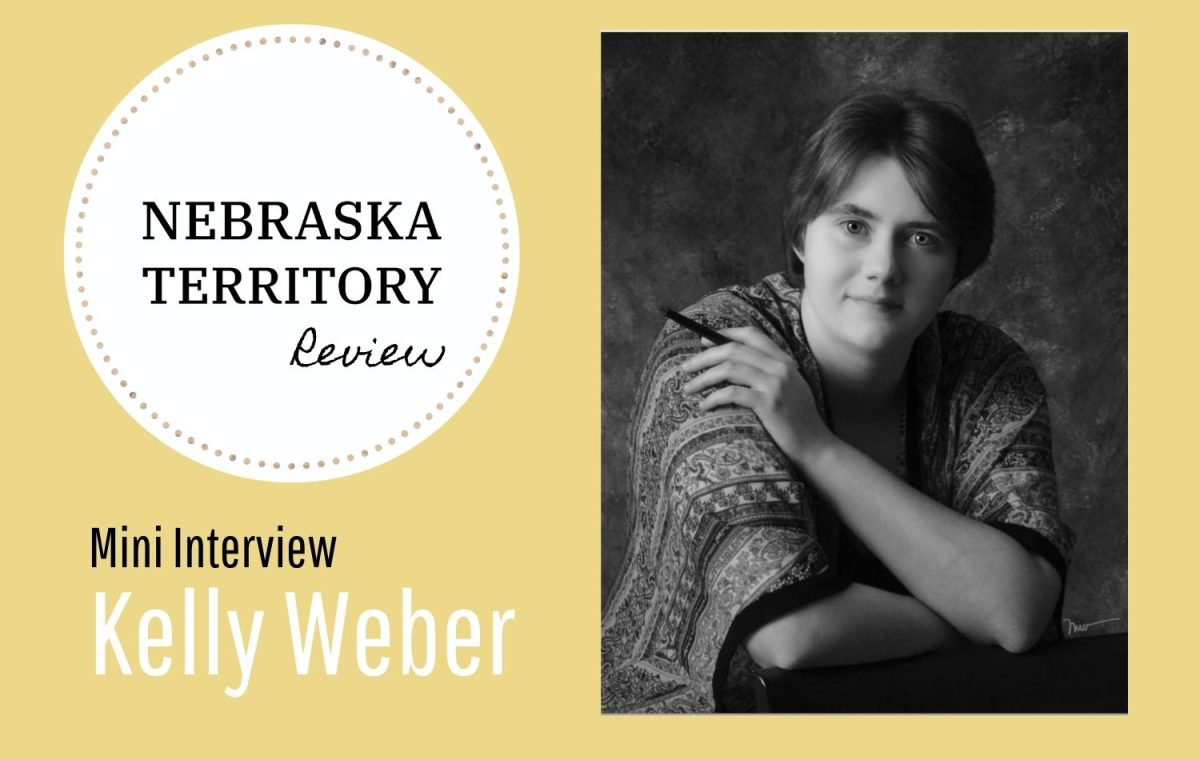How did you get into writing? Do you remember your first piece of writing?
Like so many writers, I was an avid reader before I started writing, and writing became a natural extension of that process. I wrote (really bad) fiction at first, and then over time I realized my interests and concerns as an artist gravitated toward poetry more than fiction.
What is the significance of your poetry formatting?
I love poetry collections that have a variety of forms and with poems that use the full field of the page. The form of a poem is a way for me to score the breath of the piece and to also help the reader move through the imagery and associative leaps the poem explores, in addition to enacting the concerns. I have to attend closely to what the poem needs as I’m writing, whether that’s honoring the movement of the piece as a prose poem or as a poem full of gaps and caesura.
What advice would you give to queer writers in Nebraska?
To know that we’re not alone. That poetry is available to us and can reflect us, too.
Who is your favorite author? What is your favorite book?
I love the work of Sherwin Bitsui, particularly the book Dissolve.
Do you have a writing routine, or any methods you use?
I try to write every morning. Mostly, my method is patience and trusting that, when a poem reaches its most frustrating point in the process, I’m about to understand something about/through the poem’s central concern and formal needs.
What inspires your writing?
Reading. Always reading, and listening to the work of other writers.
What is the hardest thing about writing, and how do you work through it?
The hardest thing, for me, is digging down deep enough to find the true concern of the poem, and then finding the right form and shape for it. To distinguish between what the poem needs vs. what I want in the poem, and how those desires can sometimes be at odds with one another. The best way to work through it, for me, is time and patience.
Are you working on anything currently?
Something new–that’s all I can share for now!
What advice would you give to aspiring writers?
Read, read, read, and give yourself time to learn through trial and error. There is no rush. Embrace that your work is going to probably not be very good at first and keep trying. Ask your local library to order copies of books you want to read–this supports authors and helps you discover great writing. If you read a book you love, let the author or the press know!
Is there anything else you would like to add?
Poetry will not bring you money, but I think it’s been such a worthwhile practice of attention in my life.
About the Author
Kelly Weber (they/she) is the author of We Are Changed to Deer at the Broken Place (Tupelo Press, 2022), and You Bury the Birds in My Pelvis, winner of the 2022 Omnidawn First/Second Book Prize (forthcoming December 2023). Their work has appeared or is forthcoming in a Best American Poetry Author Spotlight, Hayden’s Ferry Review, Southeast Review, Salamander, The Journal, Passages North, Foglifter, and elsewhere. She holds an MFA from Colorado State University. Find them on Twitter at @KellyWeberPoet.



